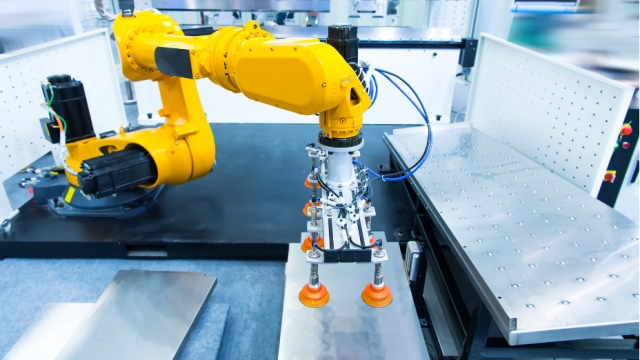
In today’s fast-paced world, heavy vehicle manufacturing and supply are crucial components of transportation and logistics industries. The future of this sector holds immense potential for innovation and advancements that can revolutionize the way we perceive and utilize heavy vehicles on the road. Companies in this space are constantly striving to develop more efficient, sustainable, and technologically advanced solutions to meet the evolving demands of modern society. As we look ahead to the future, heavy vehicle manufacturing and supply are set to play a pivotal role in shaping the landscape of transportation and contributing to a more sustainable and interconnected world.
Challenges in Heavy Vehicle Manufacturing
One challenge faced in heavy vehicle manufacturing is the need for advanced technology to keep up with demand for efficiency and performance. Manufacturers must invest in research and development to incorporate features such as autonomous driving capabilities and eco-friendly engines.
Another hurdle is the complexity of supply chains in heavy vehicle manufacturing. With various components sourced from different suppliers worldwide, ensuring timely delivery and quality control can be a daunting task. Any disruptions in the supply chain can lead to delays in production and fulfillment of orders.
Moreover, meeting stringent regulations and standards in the heavy vehicle industry adds another layer of difficulty. Manufacturers must comply with safety, emissions, and quality regulations imposed by governments and industry bodies, requiring continuous monitoring and adaptation to stay ahead in the market.
Technological Advancements in Supply Chain Management
In today’s rapidly evolving heavy vehicle manufacturing industry, technological advancements have played a pivotal role in transforming supply chain management processes. With the integration of artificial intelligence and machine learning, manufacturers can now optimize inventory levels and streamline logistics operations for increased efficiency and cost-effectiveness.
One key development is the implementation of real-time tracking systems that provide actionable insights into the movement of goods along the supply chain. By harnessing the power of IoT devices and sensor technology, manufacturers can now monitor the status and location of raw materials, components, and finished products with unprecedented accuracy and timeliness.
Furthermore, advanced data analytics tools have revolutionized demand forecasting and inventory management practices within heavy vehicle manufacturing. By leveraging predictive algorithms and historical data analysis, manufacturers can anticipate market trends, identify potential supply chain disruptions, and proactively adjust production schedules to meet changing customer demands.
Environmental Impact and Sustainability Practices
In heavy vehicle manufacturing and supply, there is a growing focus on reducing environmental impact through sustainable practices. Companies are increasingly integrating eco-friendly technologies in their production processes to minimize carbon emissions and energy consumption. From using recycled materials to implementing energy-efficient equipment, the industry is striving to make significant strides towards a greener future.
Moreover, sustainable supply chain management is becoming a pivotal aspect of heavy vehicle manufacturing. Companies are working closely with their suppliers to ensure that sustainable practices are implemented at every stage of the production process. This includes sourcing raw materials ethically, optimizing transportation routes to reduce fuel consumption, and promoting recycling and waste minimization efforts across the supply chain.
https://www.truckman-vehicle.com/
Overall, the push towards environmental sustainability in heavy vehicle manufacturing and supply is not only driven by regulatory requirements but also by consumer demand for greener products. By adopting sustainable practices, companies are not only reducing their environmental footprint but also gaining a competitive edge in the market. As the industry continues to evolve, it is clear that sustainability will play an increasingly important role in shaping the future of heavy vehicle manufacturing and supply.
